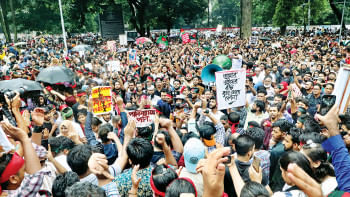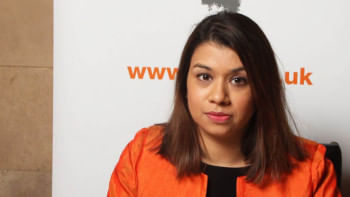The wisdom of youth

A friend recently came to visit me with her 14-year-old daughter. One day, we got to talking about economics.
"You probably think," I told her, "that economics is all about making money. But what if it was about managing our resources wisely? Let's say we need to house people. Different companies come forth with different proposals. One wants to clear some forest and build luxury housing; it will generate a lot of money (mostly for the company) while harming the environment and doing nothing to help the poor.
"Another company plans to build high-rise buildings for the poor, way out from the city where there are no job opportunities. A third company proposes building low-rise, affordable housing interspersed among other housing, complete with vegetable gardens, using local materials and local workers.
"The decision of who gets permission to build wouldn't be based on how much money a company would make; it would be based on how many people we could comfortably and affordably house, and whether we could avoid damage to—or even make things better for—the environment."
She nodded. "Well, of course."
I continued, "The same with making clothing. Are we dumping chemicals into the river, or making them in a way that doesn't harm the environment? Any major project would be approved based on how good it is for the workers and the environment."
She nodded again. "How else would you do it? That makes perfect sense!"
Perhaps the biggest mistake we make in this world is not allowing ourselves, at least occasionally, to be guided by the wisdom of youth. We have created a world of such complexity that none of us can understand more than a tiny piece. We use devices with no idea how they are built or how they function. We leave major decisions in the hands of so-called experts, who are so specialised that they are unaware of how their field of work impacts other people, issues or our planet.
Mind you, I am not arguing for oversimplification. Many issues are complex, and too often our solutions are ridiculously out of scale with the nature of the problem. We take one aspect of a complicated mess and address that, while ignoring everything else. Thus, we think that self-driving cars are the solution to the 12 lakh people dying every year in road crashes, or that electric vehicles will magically resolve pollution and the climate catastrophe.
Never mind that both those solutions still involve mining resources that are rapidly running out, using electricity (which is mostly still generated by burning fossil fuels), clogging our roads, and creating ever more isolating and hence dangerous and depressing cities.
But there are also cases in which we are overly complex. Teachers of economics like to bring out long and intricate formulas. They—like specialists in all fields—use jargon and acronyms that are meaningless to the uninitiated. They tell us that they possess arcane and necessary knowledge, and thus must be the ones to make decisions that affect nearly every aspect of our daily lives: where we live, how we travel, what we eat and wear, and whether we can visit our friends (or have any).
Sure, one can argue that an ignorant child or teenager doesn't understand complicated concepts like economics. Certainly, so-called common sense can often lead us astray. But there are instances where the innocence of youth is combined with deep insight. We have all heard a naïve child make a remark that astounded us with their ability to unpack complexity and arrive at a simple truth.
In that vein, I suggest a simple truth: that our paradigms about economics such as intense competitiveness, the necessity of global trade for virtually every product, and the need to be ever-faster, ever-bigger, and ever-richer are wreaking utter devastation on our families, communities and planet. A profound rethinking of how we conduct the business of living is needed, and an approach that may sound childishly simplistic and utterly impractical may, in fact, be the approach that is needed to save our lives, our societies, and earth.
After all, if we have learnt nothing else in the last several months, it is not to underestimate the power of young people.
Debra Efroymson is executive director at the Institute of Wellbeing, Bangladesh.
Views expressed in this article are the author's own.
Follow The Daily Star Opinion on Facebook for the latest opinions, commentaries and analyses by experts and professionals. To contribute your article or letter to The Daily Star Opinion, see our guidelines for submission.

 For all latest news, follow The Daily Star's Google News channel.
For all latest news, follow The Daily Star's Google News channel. 










Comments